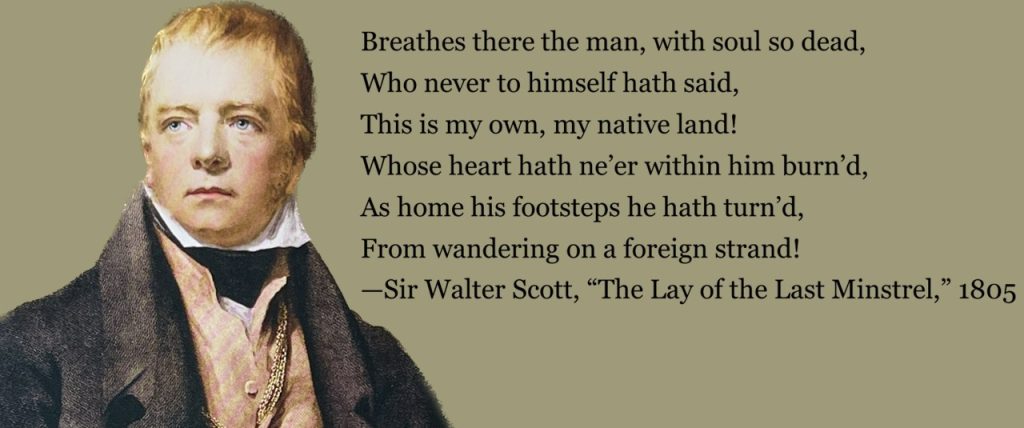Shortly before his death, President John F. Kennedy wrote: “There is little that is more important for an American citizen to know than the history and traditions of his country. Without such knowledge, he stands uncertain and defenseless before the world, knowing neither where he has come from nor where he is going. With such knowledge, he is no longer alone but draws a strength far greater than his own from the cumulative experience of the past and a cumulative vision of the future.”
But we have fallen grievously short of our obligation to cultivate what President Ronald Reagan in his farewell address called, “informed patriotism.” What is encouraging, however, is a growing movement of lawmakers and scholars to do something about it.
Since only 19.5% of the colleges and universities that have a stated liberal arts mission require even a single one-semester course on American history or government, legislatures are stepping into the breach that college faculty and administrators have left. This year, Ohio Senator Jerry Cirino presented Senate Bill 83, which prescribes, at a minimum, that every undergraduate complete a course that covers the Constitution of the United States, the Declaration of Independence, the Emancipation Proclamation, at least five essays from the Federalist Papers, Dr. Martin Luther King, Jr.’s “Letter from Birmingham Jail,” and the Gettysburg Address. Before the North Carolina General Assembly at this moment is House Bill 96, the “Reclaiming College Education on America’s Constitutional Heritage Act” (REACH Act), which prescribes the same texts: Both bills take their cue from South Carolina, which passed its REACH Act in 2021. In 2022, the Arizona Board of Regents mandated a similarly detailed list of minimum requirements for the American Institutions course that all undergraduates must complete. This followed upon Florida’s strong civic education legislation of 2017 and 2022.
Cultural change is ultimately more difficult, but here, too, there are promising signs even from within the academy. Witness three recent publications. Steven Smith, Alfred Cowles Professor of Political Science at Yale University, published Reclaiming Patriotism in an Age of Extremes in 2021, and in the same year, Johns Hopkins University President Ronald Daniels’s book, What Universities Owe Democracy, appeared. And in 2022, Dr. Richard Haass published The Bill of Obligations: The Ten Habits of Good Citizens.
What these books have in common is an intense commitment to the liberal democracy that gives us the right to participate in it, indeed to criticize it. And, with that, the absolute obligation to instill the values and principles of our free society. Dr. Haass and President Daniels call not only for better K-12 civic education, but, like past president of Harvard University Derek Bok, for a required college course on American history and government.
The Russian poet Yevgeny Yevtushenko wrote, “who never knew the price of happiness, will not be happy.” Those in our nation who do not understand the blessing of freedom and the price past generations paid for it are likely to scorn that heritage. We need look no further than the poll taken by Quinnipiac University shortly after Russian troops invaded Ukraine. In response to being asked if they would stay and fight if Russia invaded America, only 45% of Americans aged 18–34 answered they would fight rather than flee. It is a sign of a deep cultural weakness and an egregious failure of our education system.
Dr. Haass and Professor Smith also call us back to the civic virtue and civic understanding that we must recover or, to use Abraham Lincoln’s words, we “meanly lose the last best hope on earth.” Both, interestingly, endorse the idea of mandatory national service, military or civilian. Dr. Haass bids us to “put the country and American democracy before party and person.” Professor Smith goes further and calls on Americans to embrace their patriotism—yes, he uses the “p” word over and over. With due circumspection about how the term “exceptionalism” can be abused, he asks us to remember that the United States is uniquely a nation founded on a creed that includes equality, liberty, individuality, and pluralism. He does not hesitate to encourage our emotional bond with our nation.
Professor Smith ironically described the reaction of his faculty colleagues to his announcement that he was writing a book about patriotism as ranging from shock and disbelief to horror and disgust. We need to change that mindset, and President Reagan once told us how:
We were taught, very directly, what it means to be an American. And we absorbed, almost in the air, a love of country and an appreciation of its institutions.
And let me offer lesson number one about America: All great change in America begins at the dinner table. So, tomorrow night in the kitchen I hope the talking begins. And children, if your parents haven’t been teaching you what it means to be an American, let ‘em know and nail ‘em on it. That would be a very American thing to do.
This article appeared on Forbes on June 29, 2023
